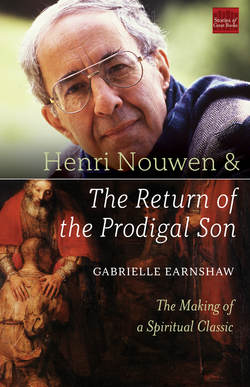Читать книгу Henri Nouwen and The Return of the Prodigal Son - Gabrielle Earnshaw - Страница 12
На сайте Литреса книга снята с продажи.
Search for Intimacy
ОглавлениеNouwen sees the poster and has a visceral reaction. His body responds—his heart leaps in his chest. As much as he wants his father’s approval and love, he longs for the father’s touch. In an early draft of the book, he writes, “[The poster] seemed to respond to my own deepest yearnings, my own most hidden desires, my never satisfied hunger for affection and my unmitigated cry for God’s mercy.”13
Nouwen sometimes ascribed his longing for intimacy to effects of the parenting styles he experienced early on. Although he felt “enormous love” from his parents throughout his life, Nouwen also reported that in addition to his father’s work-to-earn-love messaging, his mother was “a nervous, scrupulous woman whose many fears prevented her from freely holding and touching” him (Home Tonight, 36–37). It is likely that his parents, and his mother in particular, were influenced by Dutch childrearing practices of the 1920s and 1930s, which stressed a parental attitude of cleanliness, tranquility, and regularity (or, in Dutch, the “three Rs”: Reinheid, Rust en Regelmaat). According to this regime, “feeding schedules had to be strict and infants were not to be picked up between feedings, for fear of spoiling them. Mothers were to let children cry until it was their suckling time and to refrain from cuddling. If possible, babies were to sleep in a quiet room undisturbed and alone. Older children had to obey, be polite, and were not allowed to disturb their parents.”14
These rules of childrearing were likely very hard on Nouwen, who by all accounts was an intense and unusually sensitive child. The language for describing himself (especially before being edited) tended to be hyperbolic and melodramatic.15 Being very sensitive was how Nouwen went through life.
